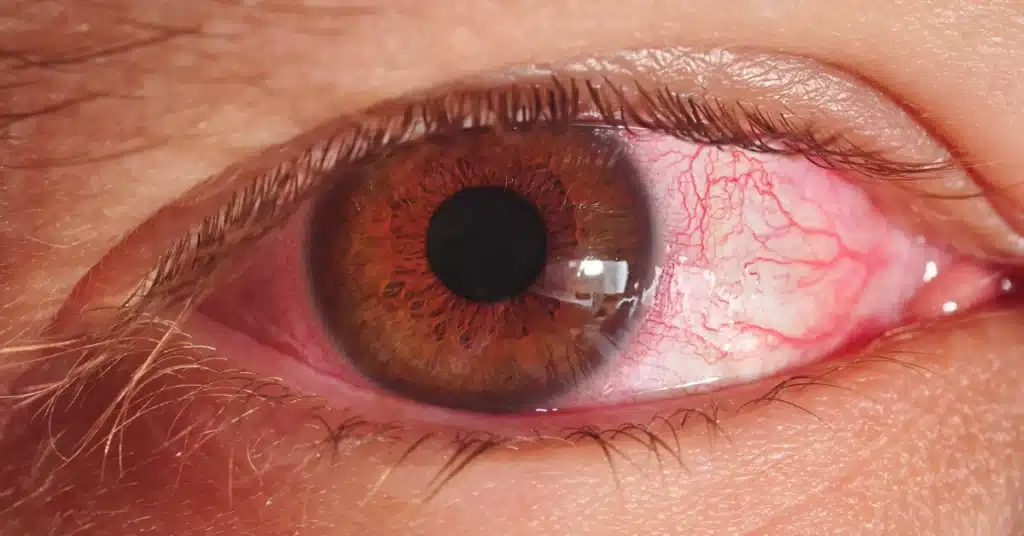Viral eye infection is a discomforting and highly contagious condition that affects people of all ages.
The condition is caused by viruses and may lead to redness, irritation, watery discharge, and light sensitivity.
It is important to have a comprehensive eye exam to diagnose viral eye infections.
Let us explore more about viral eye infections, their causes, symptoms, and treatment options.
What is a viral eye infection
Viral eye infection is a type of eye infection that causes inflammation and irritation in different parts of the eye due to certain viruses.
The most common types of viral eye infections include Viral Pink Eye, Herpes Keratitis, and Viral Anterior Uveitis.
Viral eye infections are contagious in nature and may spread from one person to another.
One should wash their hands properly and avoid contact with an infected person to prevent viral eye infection.
Consult a doctor for proper preventive measures and regular eye checkups.
Viral eye infection causes
Viral eye infections are caused by viruses, which can be highly contagious and easily transmitted from person to person.
The most common viruses responsible for Viral Conjunctivitis include Adenovirus, Herpes Simplex, and Varicella-Zoster.
Also, a study states that Herpes Simplex is one of the major causes of Viral Keratitis.
On the other hand, research states that Herpes Simplex, Varicella-Zoster, and Cytomegalovirus are responsible for Viral Anterior Uveitis.
Consult a doctor for a complete eye exam to detect the causes of viral eye infection early.
Viral eye infection symptoms
 Source: dtimiraos_from_Getty_Images
Source: dtimiraos_from_Getty_ImagesUnderstanding and identifying the symptoms of a viral eye infection is crucial for proper diagnosis and treatment.
The Viral Pink Eye symptoms include redness, swelling, eye discharge, and sensitivity to light.
Viral Keratitis patients may experience symptoms like watery eyes, eye redness, discharge, itching, and pain.
On the other hand, Viral Uveitis may lead to increased eye pressure and changes in the iris.
Consult an eye doctor if you experience any of the above symptoms constantly.
Viral eye infection treatment
 Source: Denisfilm_From_Getty_Images
Source: Denisfilm_From_Getty_ImagesViral eye infections normally resolve on their own, but doctors may prescribe some treatment measures to help ease symptoms.
The viral eye infection treatment options include artificial tears, antiviral medicine, and cold compress.
Artificial tears are lubricating eye drops that can provide relief from dryness and irritation.
The eye drops help maintain moisture on the eye’s surface and reduce discomfort.
However, doctors can also prescribe antiviral medications for more serious cases of Viral Pink Eye.
The medicines can help control the spread of the virus and promote faster healing.
One can also use a cold compress on the affected eye to help ease swelling and irritation.
Cold compress is a simple and cost-effective remedy that can be used at home to improve viral eye infection symptoms.
Consult an eye doctor for a complete eye exam and a proper treatment plan.
Want to explore home remedies to help with eye infections? Read: 7 Effective Home Remedies for Eye Infection
Key takeaways
Viral eye infection is a common condition that may cause eye redness, irritation, itching, discharge, and more.
The most common types of viral eye infections include Viral Pink Eye, Viral Keratitis, and Viral Anterior Uveitis.
Viral eye infection is caused by viruses and can spread from one person to another.
The most common viruses responsible for viral eye infection are Adenovirus, Herpes Simplex, and Varicella-Zoster.
Fortunately, treatment options like artificial tears, antiviral medicine, and cold compress can help control the symptoms of viral eye infections.
Consult a doctor for a proper eye diagnosis and treatment plan.
Frequently Asked Questions
How long does a viral eye infection last?
The duration of a viral eye infection varies but normally lasts about 1 to 2 weeks. The infection usually resolves on its own, and the symptoms may improve within a few days.
What does a viral eye infection look like?
A viral eye infection shows redness, irritation, and a watery discharge. The affected eye may appear bloodshot, and individuals may experience itching, eyelids swelling, and sensitivity to light.
Is a viral eye infection serious?
In most cases, viral eye infections are not serious and resolve on their own. However, serious viruses like Herpes Simplex may need medical attention. Consult an eye doctor if the viral eye infection symptoms are consistent.
Can viral eye infection spread?
Yes, viral eye infections are highly contagious and can easily spread through direct contact with infected individuals or contaminated surfaces.
One should practice good hygiene to prevent the transmission of viral eye infections.
What to do for viral eye infection?
One can try home remedies for eye infections like a cold compress, saline solution, good hygiene, and avoiding touching or rubbing the eyes.
A person can also consult a doctor for treatment options for viral eye infections like artificial tears, cold compress, and antiviral medicine.
When referencing outside resources, GoodrxMedicine always provides full citations. To learn more about the measures we use to maintain the quality of our content, please review our Content Information Policy.










